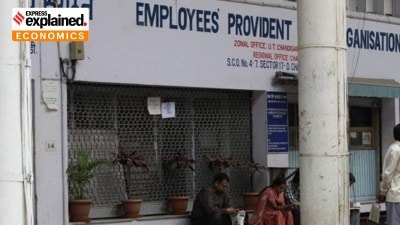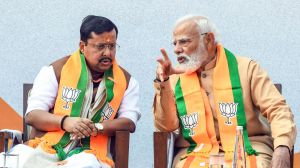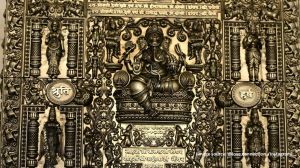Why Somnath matters
When Herbert Baker designed Parliament House, he paid especially close attention to the design of the speaker8217;s chair.

When Herbert Baker designed Parliament House, he paid especially close attention to the design of the speaker8217;s chair. Like its equivalents elsewhere, and its original at Westminster, it was to dominate the chamber. As legislators rose to speak, they should, thought Baker, face it automatically.
Unfortunately, that isn8217;t quite how it turned out. Members of Parliament, caught up in heated argument, frequently forget the tradition that they must address the speaker rather than each other, a tradition meant precisely to minimise personalised, acrimonious squabbling.
That is not the only transplanted tradition that has had difficulty putting down roots in the harsh earth of the Lok Sabha. In Britain, for example, the speaker of the House, once chosen, fights the subsequent election uncontested, and without party affiliation, as 8220;the speaker8217;s candidate8221;. When the assemblies of pre-independent India were formed, attempts were made to replicate this: Vithalbhai Patel, the first man to sit in Herbert Baker8217;s chair, resigned from the party he founded once he assumed the presidency of the central assembly. While unveiling Patel8217;s portrait in the central hall of Parliament in 1948, Nehru made it quite clear that he expected such traditions to continue, and that the speaker8217;s duty was, above all, to protect minority views.
Like so many of Nehru8217;s intentions, this foundered on the twin shoals of red-tapism and political pragmatism. Instead of trying to organically develop a consensus around exceptionalism for the speaker, his government, in inerrantly bureaucratic fashion, created a commission to study the situation, and submit a report. If that was not a sufficiently mortal blow, the overwhelming majorities that the Congress received in the first few elections after Independence and Nehru8217;s radical legislative programme meant that there was immense pressure on the speaker to shepherd government bills through the House. Much depended, therefore, on the actual conduct of the first speaker, G.V. Mavalankar.
Mavalankar, in 1953, tried to compromise: he would be a party man, he said, but still not partisan. Naturally, he was hit by a no-confidence motion in 1954. Nehru, characteristically apoplectic that his good sense was being ignored, called it 8220;vicious8221;, 8220;incompetent8221; and 8220;frivolous8221;, all perhaps in one long, carrying, sentence.
Throughout the years of Congress dominance the speaker walked Mavalankar8217;s tightrope, and was frequently the target of opposition rancour. In one particularly angry episode just before the Emergency, the socialist Madhu Limaye, moving a no-confidence motion against Gurdial Dhillon, accused him of 8220;lowering the prestige8221; of his office by, among other things, disallowing questions on uncomfortable subjects. Unsurprisingly, this theme reached a crescendo at the time when the opposition was most powerless, during Rajiv Gandhi8217;s five years with a supermajority in the Lok Sabha. Balram Jakhar was constantly fending off threats of no-confidence motions and accusations of bias, some of which may well have been deserved.
And yet it was Jakhar who first used the power of the speaker8217;s office to reclaim space for the parliamentary opposition; in response to a proposal to farm decision-making out to Congress-dominated bodies, he established instead non-partisan committees to discuss aspects of money bills. Indeed, even during the period of Congress supremacy, the speaker had sometimes stalled government legislation if points of parliamentary principle were at stake: most famously, in the ruling that the 1970 bill that sought to abolish privy purses was a constitutional amendment, and not an ordinary money bill.
Some foundations had thus already been laid for the transformation of the speaker8217;s stature that occurred during the era of coalitions. Through the 8217;90s, as other parliamentary conventions frayed, and scenes featuring airborne mikes and desk-borne MPs began to be beamed into our drawing rooms, the speaker8217;s chair began to be seen as metaphorically, as well as literally, above the fray. The decade did begin with Narasimha Rao insisting that the government could not function without a speaker 8220;from its own party8221;; but then it saw a succession of rulings that were unambiguously non-partisan, as well as a speaker from a party not in government.
This was because the turbulent mecirc;leacute;es that were the divided Lok Sabhas of the 8217;90s required a stable anchor, a source of continuity as well as of order. When last-minute procedural motions could derail entire cabinets, and set back crucial policy-making by years, the House clearly needed an arbiter who both was, and was seen to be, insulated from petty manoeuvring for political advantage. This was, after all, the very situation in which the original protections for the speaker evolved in Britain: before parties and whips, when it was every MP for himself and coalitions coalesced and dissipated unpredictably.
And that was the achievement of the ninth, tenth, eleventh and twelfth Lok Sabhas: their near-ungovernable instability, their very unruliness, paradoxically gave space for Ray, Patil, Sangma and Balayogi to expand the authority and independence of the speaker. The pressures of coalition politics organically created the tradition which Nehruvian standing committees had failed to impose: a measure of trust in the speaker8217;s impartiality.
It is this delicate, newborn accord that is threatened now, as the appeals to Somnath Chatterjee by Rabi Ray and P.A. Sangma demonstrate. However angry the ideological guides of the Left, whatever the archaic system by which they maintain internal order 8212; Stalinist discipline or Maoist self-criticism 8212; they must surely remember the days before that accord. The communist parties in this country have usually believed in holding to a certain standard of discussion, and have, ironically, provided possibly the strongest support for those liberal institutions at the Centre that maintain that standard. This is unsurprising: without that standard, without respect for the niceties of debate, their voices 8212; so marginal at the Centre 8212; are unlikely to be heard. There are few enough such institutions here; they, as much as the rest of us, cannot afford to see one of them undermined.
mihir.sharmaexpressindia.com
- 01
- 02
- 03
- 04
- 05































